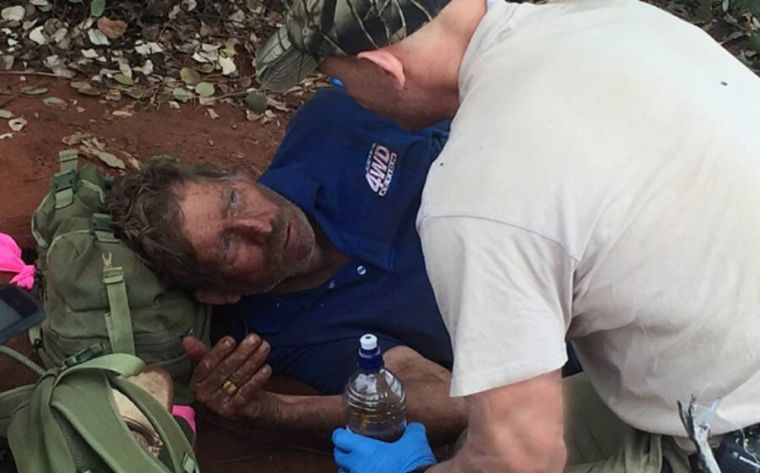'Miracle in Australian desert' as man lost for 6 days keeps self alive by eating ants

Australia witnessed a "miracle in the desert" when a man lost for six days in the country's "extremely hot" and remote Outback region with no food and water was found alive to the utter amazement and relief of his family.
Reginald George Foggerdy, 62, was rescued from the desert bushland in Western Australia on Tuesday morning by police officers who had been tracking his footprints, Fox News said.
The rescuers found Foggerdy "extremely dehydrated" and "a bit delusional" sitting under a tree.
His wife, Arlyn, cried upon learning her husband had been found alive. "How you can survive without water and food is a miracle," she told ABC News.
His sister Christine Ogden said the family never lost faith in God Who finally answered their prayers when they learned that Foggerdy had been found and rescued.
Superintendent Andy Greatwood said Foggerdy told his rescuers that he managed to survive after realising he was lost in the vast wilderness by lying down under a tree and eating black ants.
Police learned that Foggerdy had been on a hunting trip with his brother when he disappeared on Oct. 7 near Laverton, some 600 miles (950 km) northeast of Perth.
On that day, Foggerdy decided to leave the camp to hunt for a camel, but he failed to return.
The next day, a massive search on land and air was launched by volunteers and local mining and aircraft companies. For five days they were unable to locate him.
He was finally found on the sixth day of search at about 9 miles (15km) from the campsite and was immediately airlifted to hospital.
Greatwood said Foggerdy "only had shorts and a T-shirt, a cap and thongs (flip-flops)" with him when he was found.
The police officer marvelled at his survival skills, noting that he was not carrying any equipment and not even a bottle of water.
"It's fair to say it's been extremely hot, extremely remote and most people would not have survived, so he's done a fantastic job," Greatwood said.
Aside from the prayers of his family, his survival skills, and some bit of luck, Foggerdy owed his life to the crawling black ants that sustained him in the desert.
According to Mother Earth News, most ants are edible and that their flavour is "pleasantly sour" similar to vinegar because of the acid that they produce when feeling threatened.
In Colombia, Mother Earth News said, ants are roasted with salt and eaten at feasts.
Actually, the United Nations has surprisingly recommended that people should eat more insects like ants, according to the National Geographic.
In a report released in 2013, the UN Food and Agriculture Organisation (FAO) said there are more than 1,900 edible insect species on Earth, hundreds of which are already part of the diet in many countries.
In fact, FAO said some two billion people eat a wide variety of insects regularly—some cooked while others eaten raw. These insects, FAO said, are packed with protein, fibre, good fats, and vital minerals.
FAO said raising and harvesting insects have the advantage of occupying much less land than raising cows, pigs, and sheep. Insects also convert food into protein much more efficiently than livestock do, which means they need less food to produce more products. Moreover, they also emit considerably fewer greenhouse gases than most livestock.
Aside from ants, among the insects that are deemed edible are: mealworms, small grasshoppers, beetles, butterflies and moths, bees and wasps, grasshoppers, crickets, and locusts, flies and mosquitoes, water boatmen and backswimmers, and even stinkbugs











